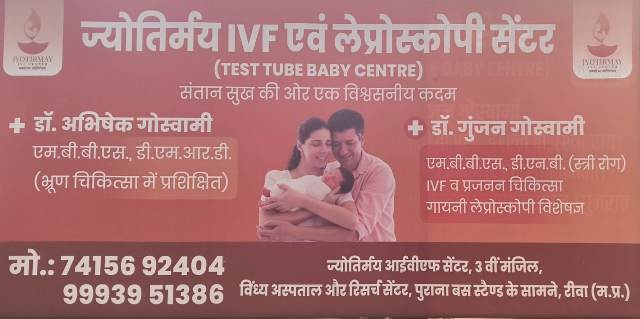Reception No. : 07662-406000 Emergency/Ambulance No. : +91-9589899826



In vitro fertilization (IVF) is a type of assisted reproductive technology (ART) where an egg is fertilized by sperm outside the body, in a laboratory setting. It's a complex process involving several steps and is often considered when other fertility treatments have been unsuccessful.

Success Rates:
Risks:
Cost:

Team:
 |
Dr. Gunjan Goswami (MBBS, DNB-Obs & Gynea) Speciality: Obs. & Gynecology |